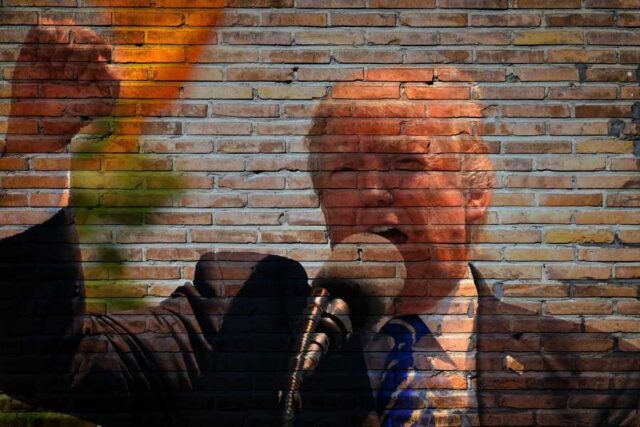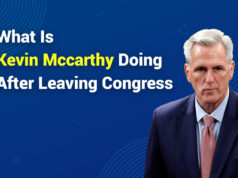What do world leaders think of Trump? Since his tenure as the 45th president of the United States, Donald Trump has generated strong reactions from leaders across the globe. His unorthodox approach to politics, foreign policy, and international relations has sparked both admiration and criticism from different corners of the world. While some world leaders praised his bold decisions, others were less than impressed by his leadership style and diplomatic choices.
In this article, we will dive into what various world leaders think of Trump, exploring the contrasting opinions, key moments in his presidency, and the long-lasting effects on international relations. From his dealings with NATO to his stance on trade wars and climate change, the opinions of foreign leaders offer valuable insights into Trump’s impact on the global stage. Whether admired or criticized, Trump’s approach has undeniably shaped global politics in profound ways.
What do world leaders think of Trump?
World leaders have had mixed views on Donald Trump. Some, such as Israeli Prime Minister Benjamin Netanyahu and UK Prime Minister Boris Johnson, praised his policies, particularly his firm stance on Iran and the Middle East peace process. On the other hand, leaders such as German Chancellor Angela Merkel and French President Emmanuel Macron have criticized Trump’s withdrawal from international agreements, including the Paris Climate Agreement, as well as his trade tariffs. Trump’s “America First” rhetoric and unpredictable foreign policy approach left many leaders wary of his long-term intentions.
Introduction to Global Reactions to Trump’s Leadership
In this section, we will provide an overview of global reactions to Trump’s leadership and foreign policies. We will focus on how different world leaders have responded to his rise to power and the impact of his presidency on international relations. This section sets the stage for a deeper dive into specific leaders’ views.
Trump’s tenure as president marked a departure from traditional diplomacy. His “America First” approach reshaped global trade, military alliances, and international agreements. This approach, while lauded by some for prioritizing U.S. interests, was met with criticism from many world leaders who viewed it as isolationist and detrimental to international cooperation.
The polarized global response to Trump reflects the challenges and complexities of global leadership. Understanding these reactions provides insight into the broader geopolitical landscape during his presidency.
World Leaders Who Supported Trump
Despite his controversial policies, some world leaders expressed strong support for Trump and his approach to global politics. In this section, we will explore the leaders who found common ground with Trump, particularly regarding issues like trade, military defense, and foreign policy.
Russian President Vladimir Putin
Putin’s relationship with Trump was often portrayed as amicable, with both leaders frequently praising each other. Their shared interest in reducing tensions between the U.S. and Russia, along with Trump’s reluctance to impose harsh sanctions on Russia, helped foster a positive relationship. However, critics have questioned the extent of this relationship, particularly regarding Trump’s actions during the 2016 U.S. election interference controversy.
North Korean Leader Kim Jong-un
Trump’s unprecedented meetings with Kim Jong-un were a significant departure from previous U.S. administrations. Trump praised Kim as a strong leader and worked toward denuclearization talks. While the summit did not yield lasting results, Trump’s personal diplomacy with Kim earned him praise from some quarters.
Israeli Prime Minister Benjamin Netanyahu
Netanyahu strongly supported Trump, especially after he recognized Jerusalem as the capital of Israel and the relocation of the U.S. embassy there. This alignment on Middle Eastern issues solidified a strong relationship between the two leaders.
Leaders Who Criticized Trump’s Policies
While Trump found support from confident world leaders, many others were critical of his policies, especially his stance on climate change, NATO, and trade.
1. German Chancellor Angela Merkel: Merkel was one of the most vocal critics of Trump’s policies, especially his withdrawal from the Paris Climate Agreement and his approach to NATO. Merkel emphasized the importance of multilateralism and global cooperation, a stance often at odds with Trump’s “America First” approach. Many would use adjectives to describe Merkel’s view of Trump as “concerned” and “resolute,” reflecting her commitment to European unity despite his divisive policies.
2. Canadian Prime Minister Justin Trudeau: Trudeau’s relationship with Trump was strained, particularly over trade issues such as tariffs imposed by Trump on Canadian goods. The two leaders had disagreements over NAFTA and the U.S.’s withdrawal from international trade agreements. However, Trudeau navigated these challenges diplomatically, emphasizing Canada’s commitment to cooperation despite differences.
3. French President Emmanuel Macron: Macron and Trump had a complicated relationship, with Macron initially attempting to engage Trump diplomatically. However, Trump’s policies on climate change, trade, and Iran led to significant tensions between the two leaders. Macron’s emphasis on European unity and multilateralism often clashed with Trump’s isolationist policies.
Trump’s Impact on U.S. Relationships with Key Allies
In this section, we will explore how Trump’s policies affected U.S. relations with key allies, particularly in Europe and Asia. While Trump’s “America First” approach was intended to strengthen U.S. interests, it often strained traditional alliances.
- NATO and Transatlantic Relations: Trump’s criticism of NATO and European allies, particularly over defense spending, created tensions within the alliance. While some leaders appreciated his push for greater burden-sharing, others felt that Trump’s rhetoric undermined long-standing partnerships.
- Trade Relations and Tariffs: Trump’s imposition of tariffs on countries like China, Canada, and the European Union reshaped trade relations. While some leaders agreed with his stance on China, others viewed the tariffs as harmful to global trade and U.S. allies.
The Legacy of Trump’s Foreign Policy
In this final section, we’ll reflect on the lasting impact of Trump’s foreign policies and how world leaders view his legacy. His approach to diplomacy, trade, and international cooperation reshaped U.S. relations with the world, leaving both positive and negative legacies.
Trump’s presidency altered the course of American foreign policy, making it more transactional and less focused on traditional alliances. While some world leaders appreciated his boldness, others felt his policies eroded trust and stability in international relations. The full impact of Trump’s foreign policy will continue to be debated for years to come.
Determination
Global leaders had mixed opinions on Trump’s presidency. Leaders like Putin and Netanyahu supported his policies, particularly in areas such as trade and defense. In contrast, Merkel and Trudeau criticized his “America First” approach, particularly regarding climate change, NATO, and international trade. Trump’s presidency reshaped U.S. relationships, with some policies fostering closer ties while others strained alliances. His actions had a lasting impact on global diplomacy, altering the dynamics between the U.S. and both its allies and adversaries. The influence of his leadership continues to affect international relations today.
FAQ’s
What were the key criticisms of Trump from world leaders?
Trump faced criticism over his withdrawal from the Paris Climate Agreement, his trade tariffs, and his approach to international alliances, including NATO.
Which world leaders supported Trump’s policies?
Leaders like Putin, Netanyahu, and Kim Jong-un supported Trump’s policies, particularly regarding trade, military defense, and diplomatic engagement.
How did Trump impact U.S. relations with NATO?
Trump’s criticism of NATO and calls for greater defense spending created tension with European allies, though some appreciated his push for burden-sharing.
What was Trump’s stance on global trade?
Trump’s “America First” approach involved imposing tariffs on countries like China, Canada, and the EU, which led to strained trade relations with key allies.
How do world leaders view Trump’s legacy?
Trump’s legacy is mixed. Some leaders appreciated his boldness and policy shifts, while others saw his actions as destabilizing for international relations.














